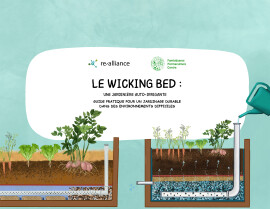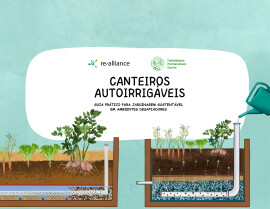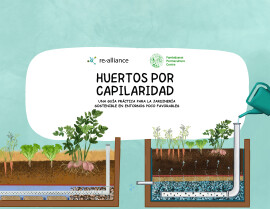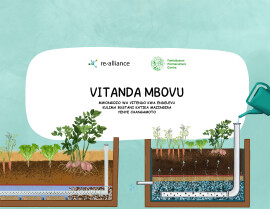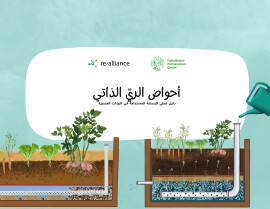
Hungry for Hope
On the cultural and communicative dimensions of development in highland Ecuador
This book deals with indigenous people and the problems that plague agricultural production in the high mountains of Ecuador. The author argues that when indigenous knowledge systems and participatory rural appraisal approaches are placed in the context of communicative action theory, they will gain theoretical, political and practical significance, and cross-cultural co-operation for development should be improved. Aimed at a varied readership, including those with an interest in agricultural knowledge systems, participatory philosophy, or the rural economy and ethnography of the Andes. Published in the Indigenous Knowledge and Development series.
Published: 1997
Pages: 128
eBook: 9781780445175
Paperback: 9781853394034
| Abbreviations viii | |||
|---|---|---|---|
| Acknowledgements ix | |||
| Preface xi | |||
| 1. A story of dead sheep 1 | |||
| Introducing a paradox 4 | |||
| 2. Anthropology and development 7 | |||
| An uneasy relationship 7 | |||
| Participatory and indigenous knowledge approaches 9 | |||
| 3. In the parish of the poor 13 | |||
| Living in Zumbahua 15 | |||
| Ecology and economy 18 | |||
| History of Zumbahua 19 | |||
| The community of Michacala 22 | |||
| Labour organization 24 | |||
| Kin 27 | |||
| Agrarian structure 28 | |||
| Livestock economy 29 | |||
| Conclusion 31 | |||
| 4. Views on the environment 34 | |||
| A scientific view of nature 35 | |||
| Climate and altitude 35 | |||
| Geography 37 | |||
| A Michacalan view of environmental forces 39 | |||
| Evil wind 41 | |||
| Taken-by-the-mountain 42 | |||
| Tingu 44 | |||
| Conditions for a good harvest 45 | |||
| 5. Veterinary and indigenous models of sheep management 51 | |||
| Veterinary views of sheep breeding 55 | |||
| Genetic selection 55 | |||
| Nutrition 56 | |||
| Management practices 58 | |||
| Sheep health 61 | |||
| A critical review 64 | |||
| An indigenous model of sheep health 67 | |||
| Rainbow 67 | |||
| Bad luck 69 | |||
| Sinister person 71 | |||
| Witchcraft 72 | |||
| Principles of the indigenous model 73 | |||
| Testing the model: protective witchcraft 76 | |||
| Conclusion 79 | |||
| 6. Hungry for Hope: on the cultural and communicative | |||
| dimensions of development 82 | |||
| The rationality debate 82 | |||
| Dialogue and change 85 | |||
| Communicative rationality 87 | |||
| Getting hungry for hope 91 | |||
| Notes 93 | |||
| Glossary 101 | |||
| Sources 102 | |||
| References 103 |
Transdisciplinary, multilevel action research to enhance ecological and psychopolitical validity
Christens, Brian
Perkins, Douglas D.
Journal of Community Psychology, Vol. 36 (2008), Iss. 2 P.214
https://doi.org/10.1002/jcop.20232 [Citations: 48]Sal/Manteca/Panela: Ethnoveterinary Practice in Highland Ecuador
Hirschkind, Lynn
American Anthropologist, Vol. 102 (2000), Iss. 2 P.290
https://doi.org/10.1525/aa.2000.102.2.290 [Citations: 9]Privatising agricultural extension: caveat emptor
Kidd, A.D
Lamers, J.P.A
Ficarelli, P.P
Hoffmann, V
Journal of Rural Studies, Vol. 16 (2000), Iss. 1 P.95
https://doi.org/10.1016/S0743-0167(99)00040-6 [Citations: 104]Once Upon a Time: Ancestors and the Evolutionary Significance of Stories
Coe, Kathryn
Aiken, Nancy E.
Palmer, Craig T.
Anthropological Forum, Vol. 16 (2006), Iss. 1 P.21
https://doi.org/10.1080/00664670600572421 [Citations: 25]Post-agrarian aspirations: tourism and rural politics in Ecuador
Lyall, Angus
Colloredo-Mansfeld, Rudi
Quick, Joe
Canadian Journal of Development Studies / Revue canadienne d'études du développement, Vol. 41 (2020), Iss. 1 P.92
https://doi.org/10.1080/02255189.2019.1675610 [Citations: 17]Defending against out-migration: Rural precarity, tourism, and hope in Quilotoa, Ecuador
Quick, Joe R
Tourist Studies, Vol. 24 (2024), Iss. 4 P.357
https://doi.org/10.1177/14687976241296147 [Citations: 2]
